October 30, 2024 | 00:23 GMT +7
October 30, 2024 | 00:23 GMT +7
Hotline: 0913.378.918
October 30, 2024 | 00:23 GMT +7
Hotline: 0913.378.918

Dung’s pork stall at a temporary kiosk on Ta Trach Street. Photo: ILRI.
Half a year has passed since the big fire at Khe Tre Market, but the memory remains for Mrs. Nguyen Thi Dung. Overnight, all the goods in her pork stall in Nam Dong's largest market were ashes.
Nearly a week after the disaster, the pork stall owner began rebuilding from a temporary Ta Trach Street kiosk near the old market site. She bought new knives, cutting boards, and trays. It took another two months for the 40-year-old woman's family life to stabilize.
People often say "Tai ong that ma" (blessings in disguise), which applied to the recent fire. With local government support, she joined the CGIAR One Health Initiative. Alongside processing tools, the project provided her with items like aprons, disinfectant spray bottles, cutting boards, hand sanitizer buckets, and gloves to ensure hygiene and food safety.
"In 2023, I attended several training sessions by local authorities, but I was hesitant. After the fire, I was determined to get it right with this project," Mrs. Dung said. She regularly cleans wooden tools with clean water and replaces them every six months. Raw and cooked meat are kept separate on new cutting boards and trays. She disinfects her hands every time she leaves and returns to the stall.
Improved hygiene or a more spacious counter-whatever the reason, Mrs. Dung's products are now more in demand. Before joining the project, she sold about one pig per day. Now, the volume has increased by one and a half times. She gets up earlier to handle the meat and clean the surfaces after processing. In return, she has extra money for her children and family.

A food safety communication campaign in Thua Thien Hue aimed to raise consumer awareness of the rating program andhelp retailers maintain good hygiene practices. Photo: ILRI.
Mrs. Dung is among pork vendors from six traditional markets who were randomly selected by the One Health Initiative to receive intervention training in Thua Thien Hue province from November 2023. The project has supplied 30 pork stalls with cutting boards, knives, stainless steel trays, antiseptic solutions, soap, and aprons, and 55 pork stalls with food safety rating signage. Additionally, nearly 100 pork vendors in six markets were trained on simple hygiene practices at the stalls.
About 50 km from Dung's stall, Mrs. Phan Thi Thuy Tram, at Dong Ba Market, Hue City, also appreciates the project's benefits. "Consumers are now more demanding in choosing food. Pork must be hygienic, safe, and have a quarantine stamp before I can sell it," she said. Since joining the project and wearing an apron with the words "Improving pork safety," she has gained more customer trust.
Pork is a popular food in Vietnam. However, a recent study by the International Livestock Research Institute (ILRI) and partners in the northern provinces showed high microbiological contamination levels in traditional markets. About 60% of pork samples were contaminated with Salmonella, a bacteria that causes food poisoning with symptoms like fever, nausea, and fatigue, and people may die from severe cases of poisoning.
Annually, 1-2 out of 10 Vietnamese people risk Salmonella infection, mainly from eating unsafe food that is sometimes contaminated by water during production, processing, preservation, and handling.
To address this, the One Health Initiative implemented a randomized controlled intervention study at 68 traditional markets in Hanoi, Thai Nguyen, Thua Thien Hue, Dong Nai, and Can Tho. After interviewing retailers and consumers and collecting samples, the project introduced and trained pork retailers on good hygiene practices. Three principles were emphasized: maintaining clean surfaces and equipment, separating meat and organs, and ensuring proper hand hygiene.
A food safety communication campaign in Thua Thien Hue aimed to raise consumer awareness of the rating program and help retailers maintain good hygiene practices. As initial results, roughly 200 people agreed to interviews, and about 1,000 customers were introduced to this food safety program.

The Management Board of Dong Ba Market periodically organizes inspections, reviews, and supervises pork stalls' hygiene and food safety compliance. Photo: ILRI.
Dr. Fred Unger, ILRI's regional representative for South, East, and Southeast Asia, remarked: "The project in Thua Thien Hue demonstrates the power of cross-sectoral collaboration in addressing complex challenges, including food safety. By working together, we can create a safer environment for consumers, improve livelihoods, and protect public health."
Mr. Le Van Anh, Deputy Director of the Department of Agriculture and Rural Development of Thua Thien Hue province, echoed this sentiment. He noted that simple and effective interventions to improve food safety can significantly reduce the incidence of food poisoning and related diseases.
This, in turn, would lessen the burden on the healthcare system and enhance people's welfare. "Organizing production according to the value chain is essential," he explained, "with vertical integration across all stages, from raising and transporting to slaughtering, processing, and consuming products."
Ensuring participation along the value chain prepares for unexpected situations, regardless of severity. This theme aligns with World Food Safety Day 2024.
Food safety incidents can result from accidents, inadequate control, fraud, or natural phenomena. While managing these incidents requires effort from policymakers, food safety agencies, farmers, and traders, direct participants like pork retailers and customers can also play a role if equipped with knowledge and regularly trained.
Ongoing efforts in food safety
Mrs. Le Thi Kim Chi, Deputy Manager of Dong Ba Market, Hue City, stated that the management board periodically organizes inspections, reviews, and supervises pork stalls' hygiene and food safety compliance.
The board also coordinates with the Sub-Department of Animal Health and relevant agencies to raise awareness among retailers about food safety and regularly disinfects the market and stalls.
Translated by Huong Giang
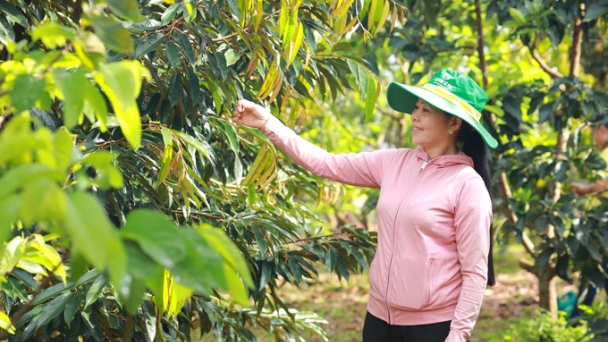
(VAN) Bi Kip Vang adopts a unique theme every year, presenting innovative formats that incorporate the most recent trends in agriculture.
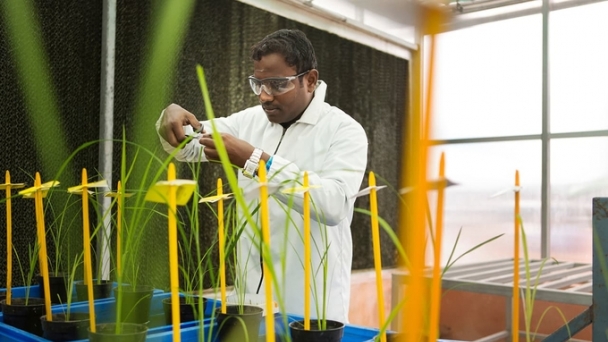
(VAN) Southeast Asian countries have been revising their legal frameworks and making swift progress in providing clear guidelines for gene-editing technology.
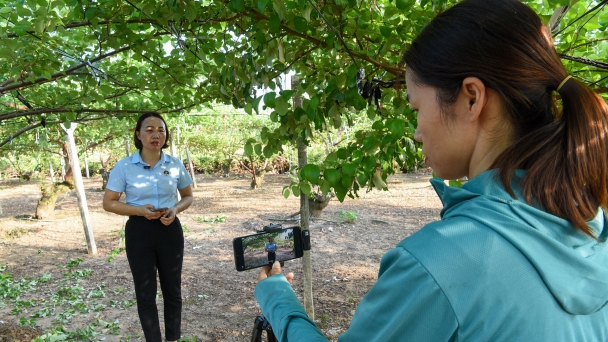
(VAN) When writing scripts, a person needs to think for a long time, but by giving commands to artificial intelligence, it can come up with ideas and we just need to refine them to finish.
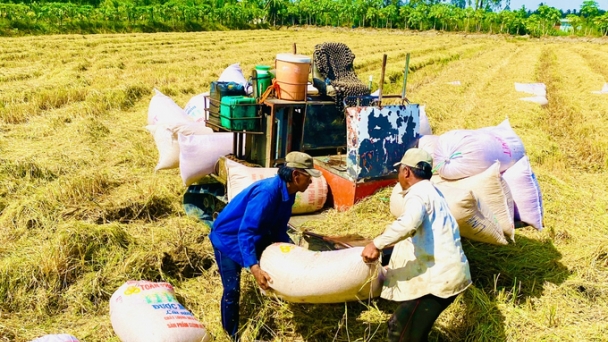
(VAN) Experts say regulatory agencies should assume a coordinating role to facilitate the alignment of stakeholders in the rice value chain on work perspectives.
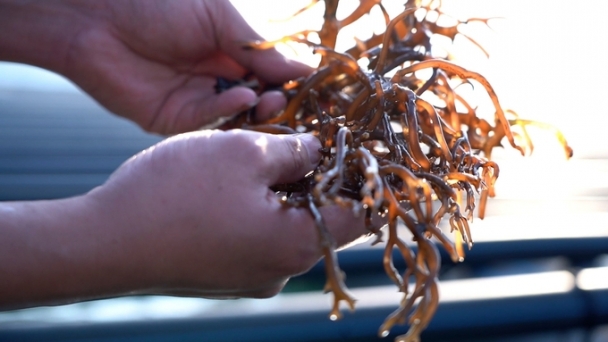
(VAN) This was shared by Mr. Dinh Xuan Lap, Deputy Director of ICAFIS, at the seminar 'Closing the high-value seaweed chain' held on the morning of October 25 in Hanoi.

(VAN) The Blue Revolution Fund (BRF) - an aquaculture impact investment fund established by Hatch Blue and advised by The Nature Conservancy - has closed with €93 million in commitments.
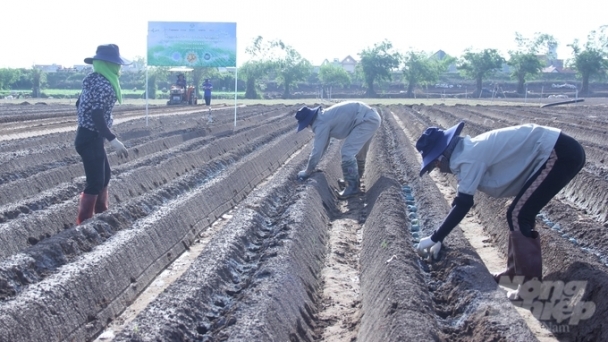
(VAN) The collaboration between the public and private sectors in the sustainable potato production chain is providing farmers in northern provinces with opportunities to increase their income.